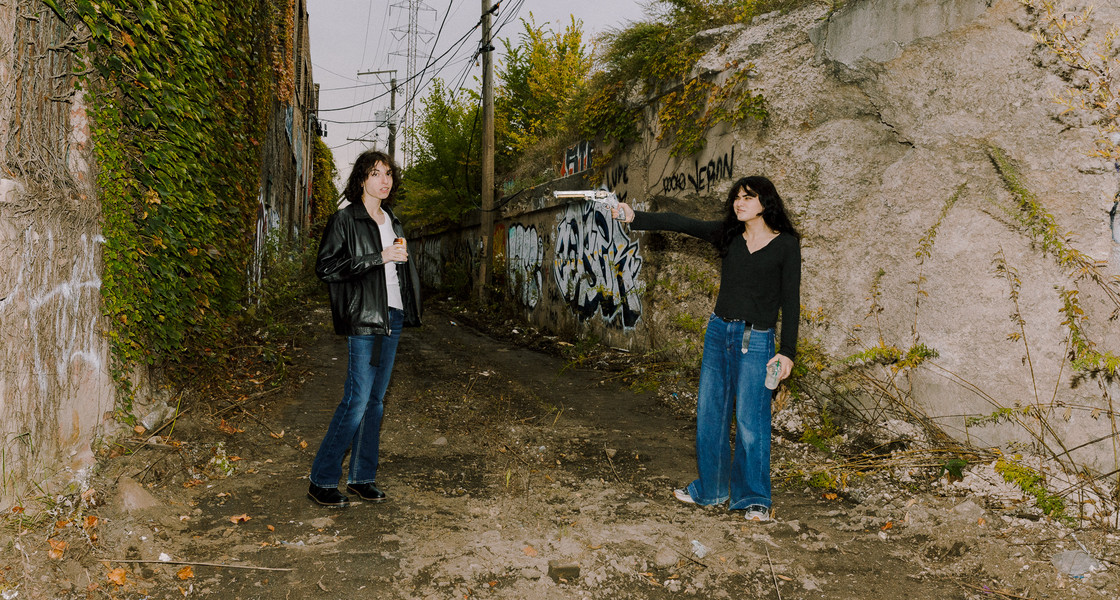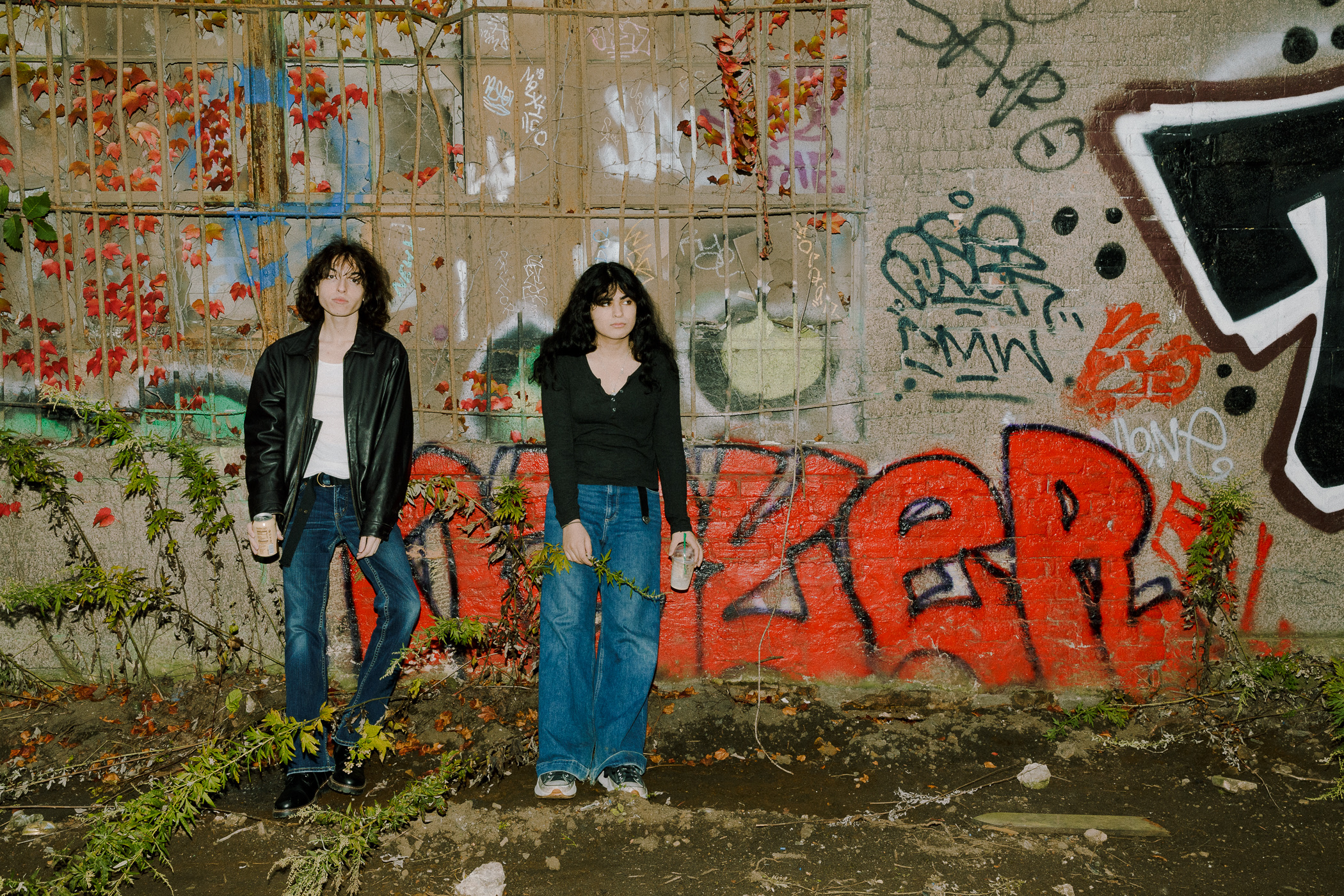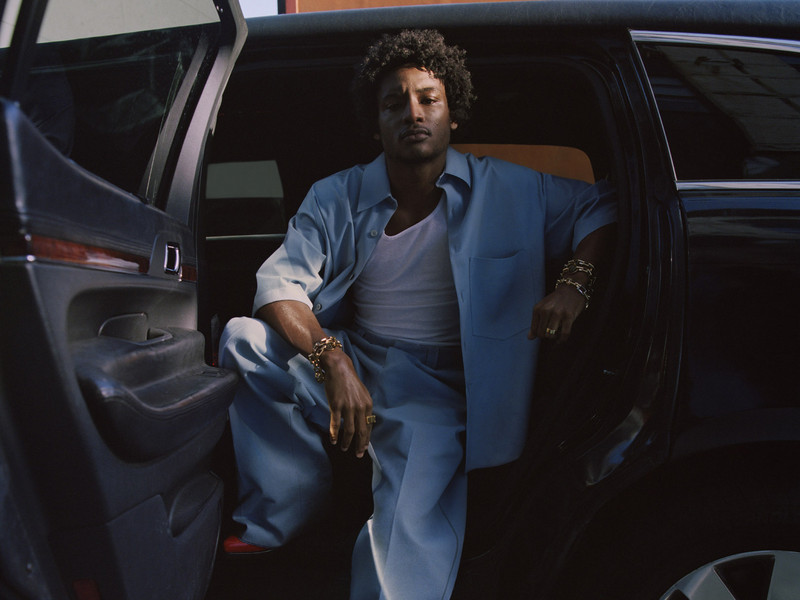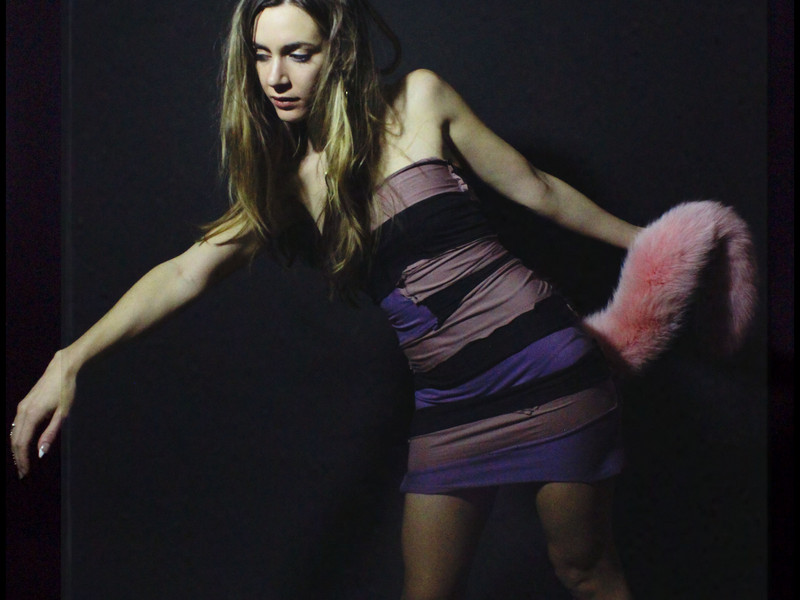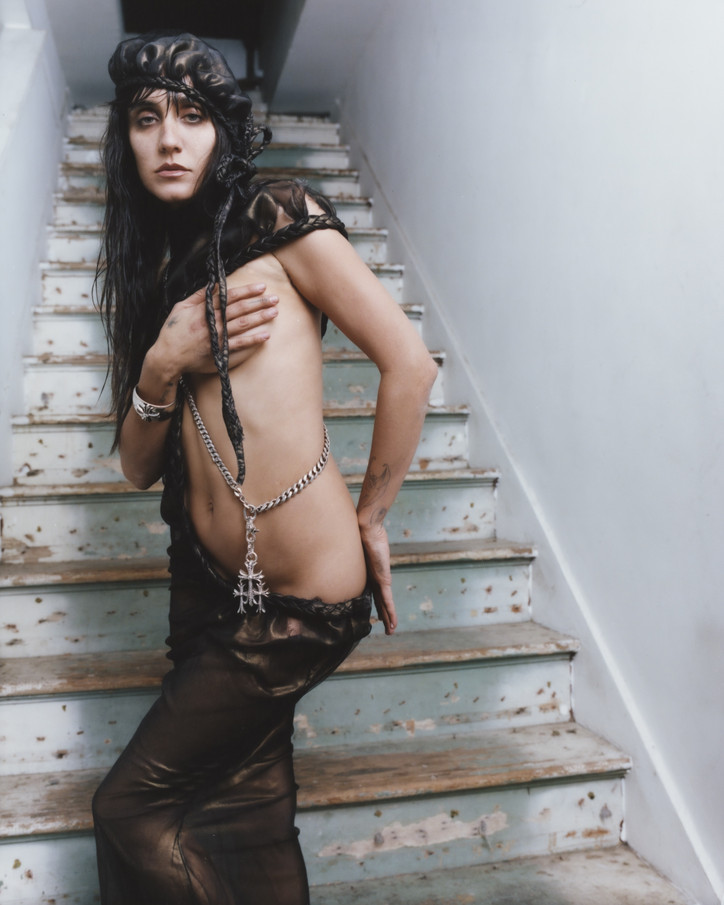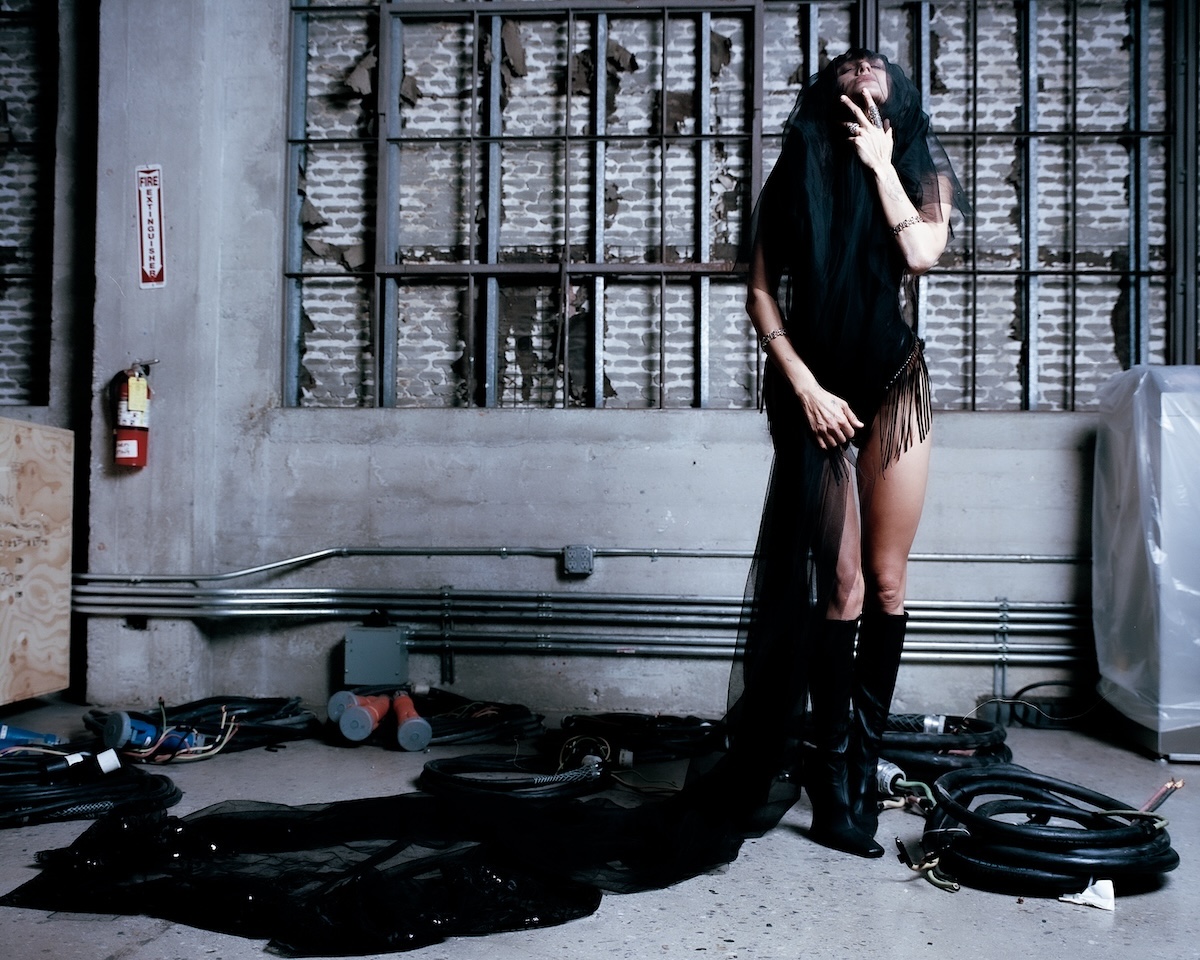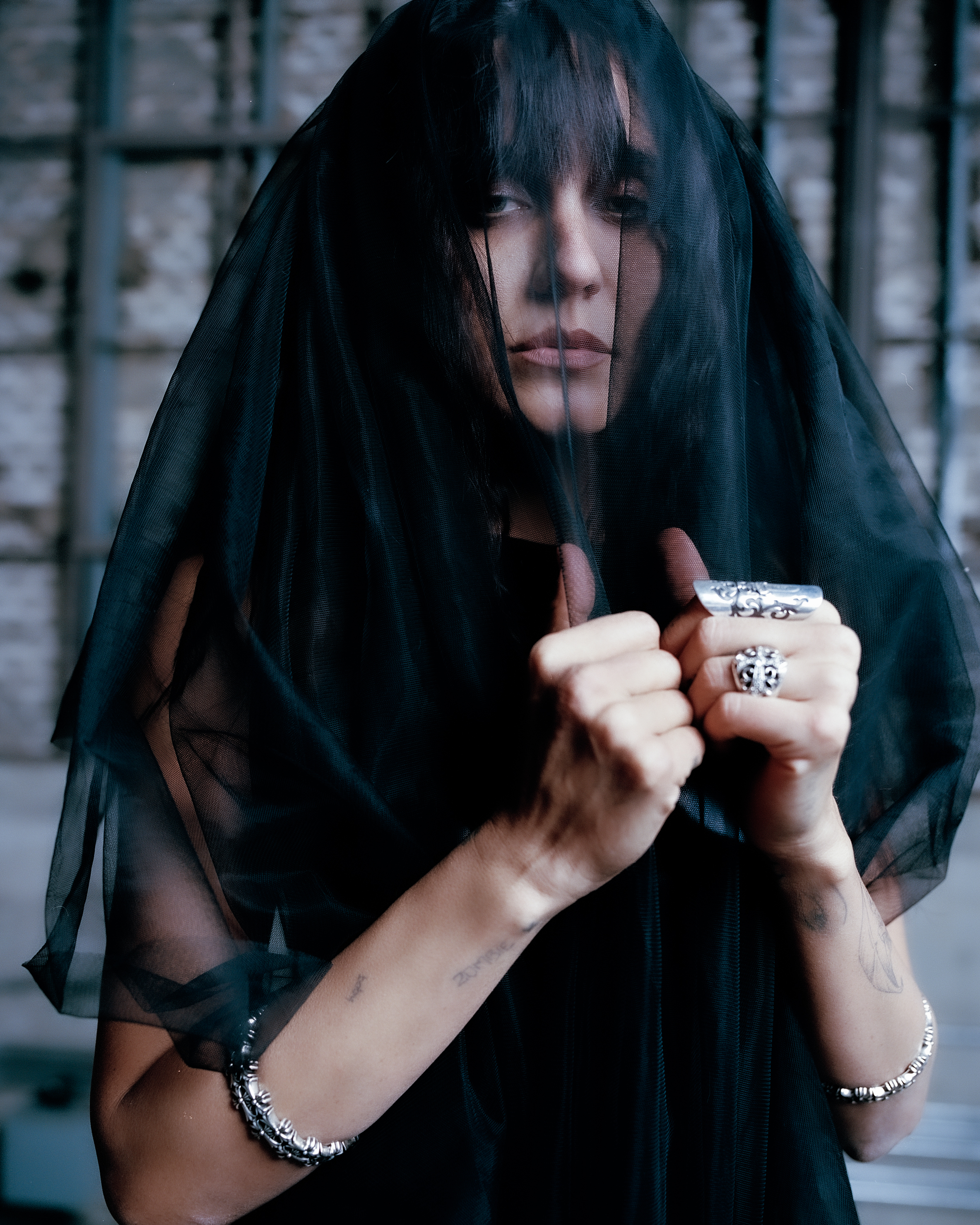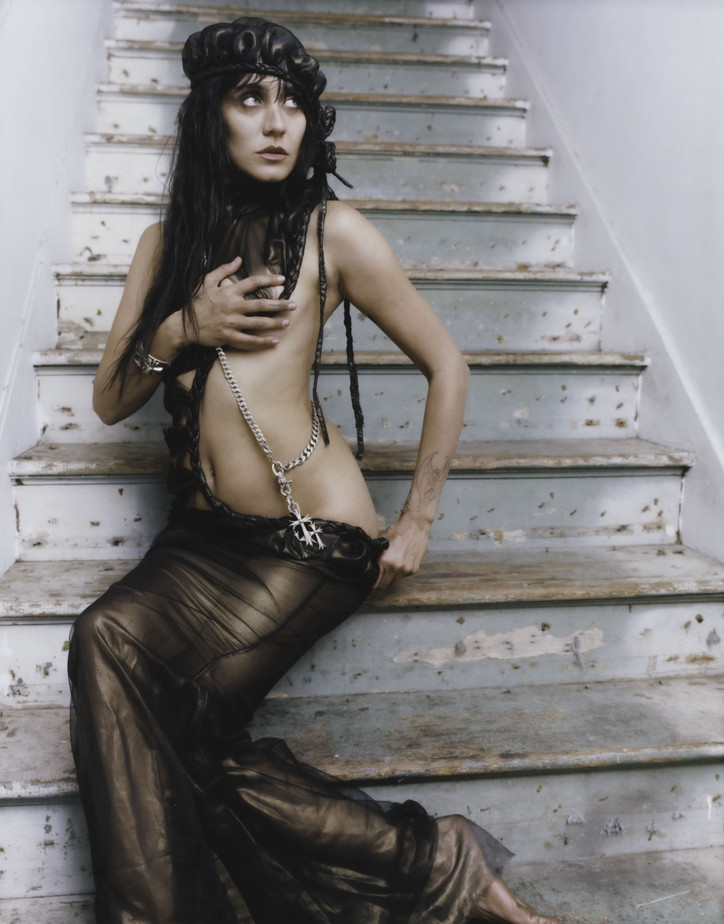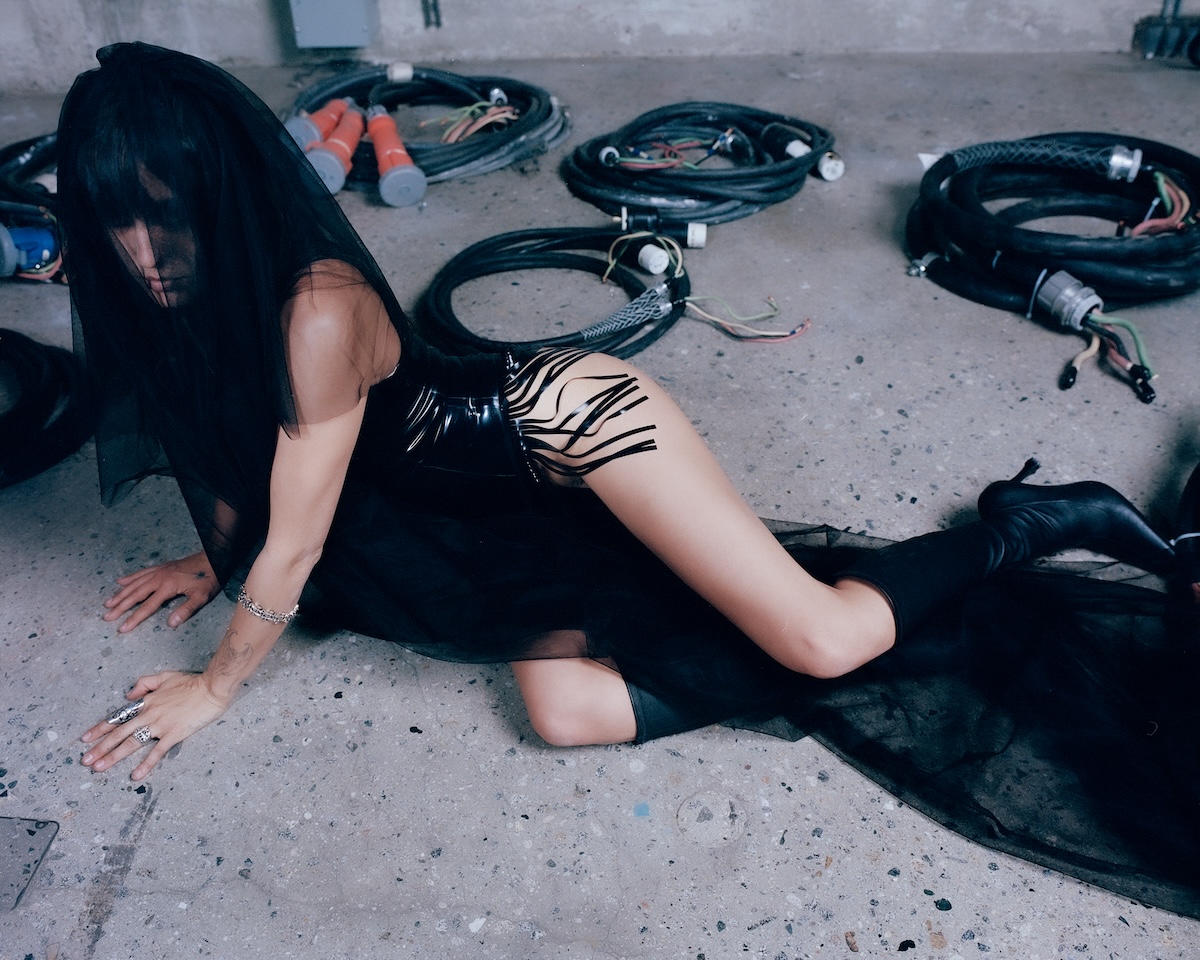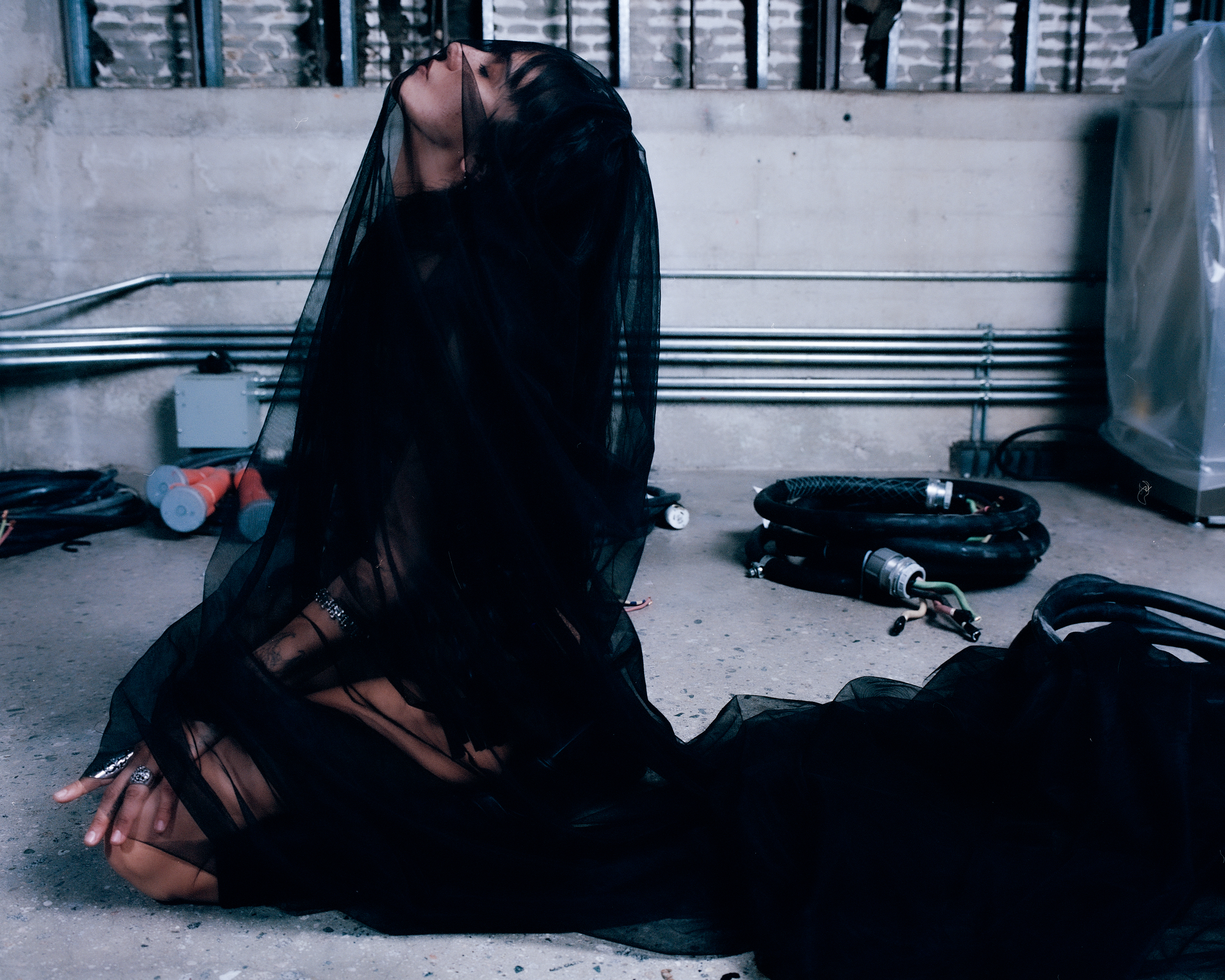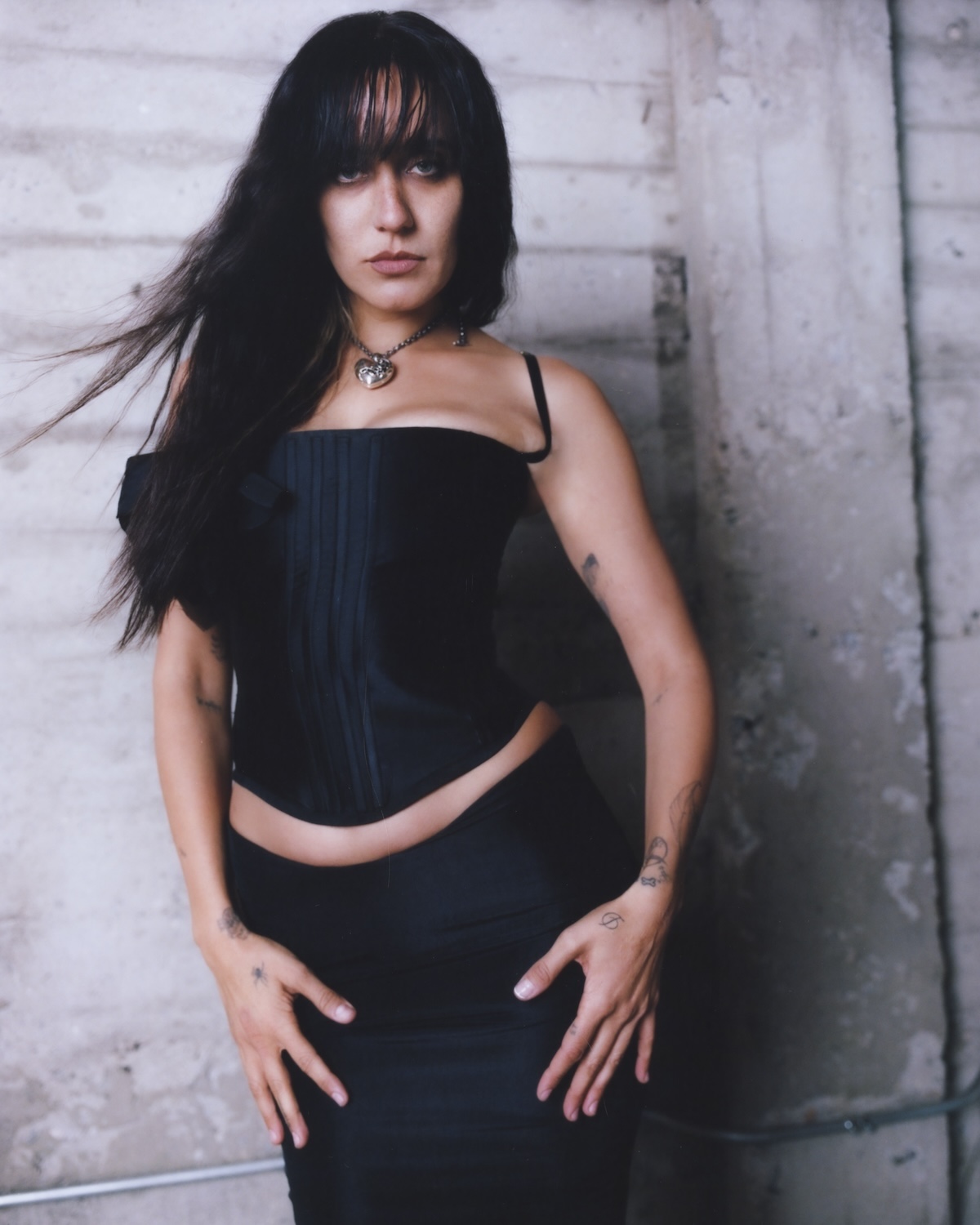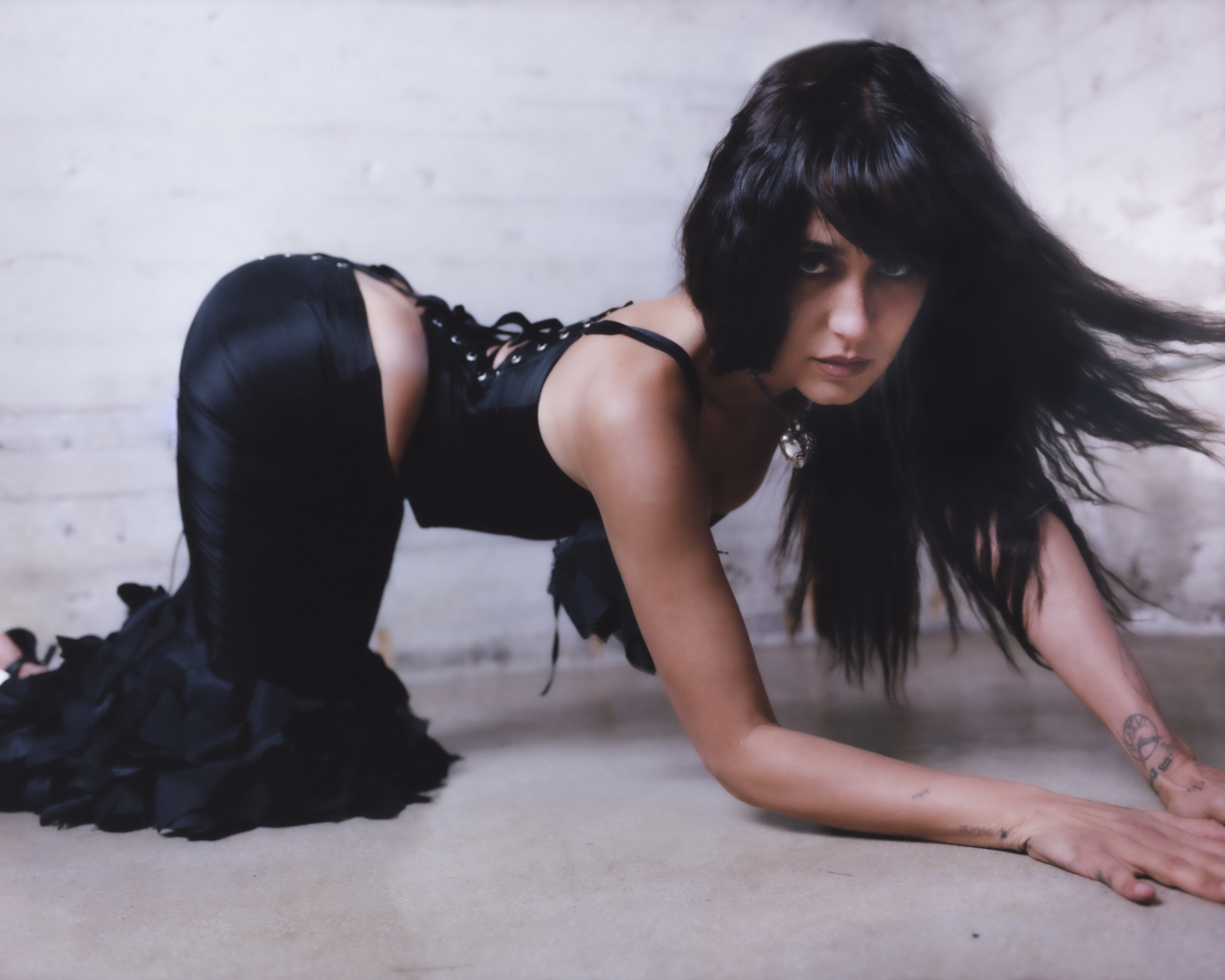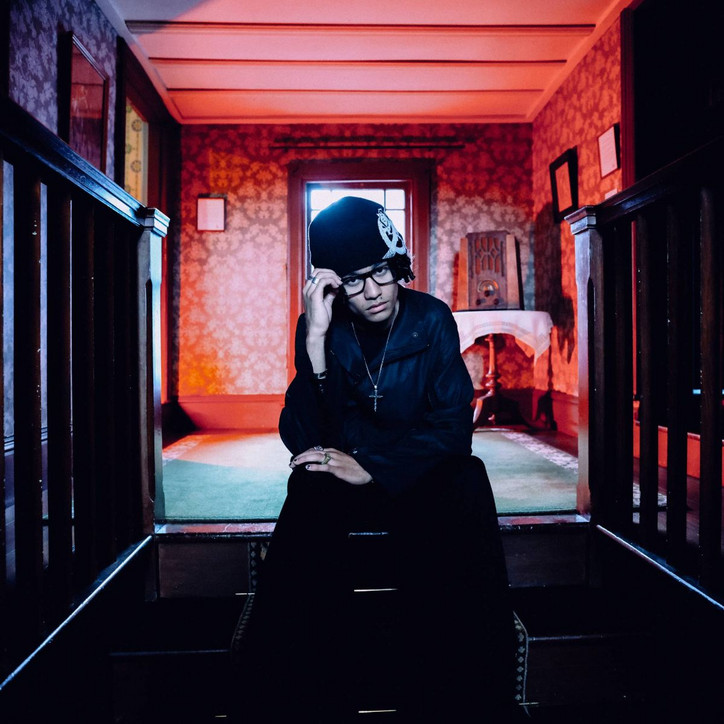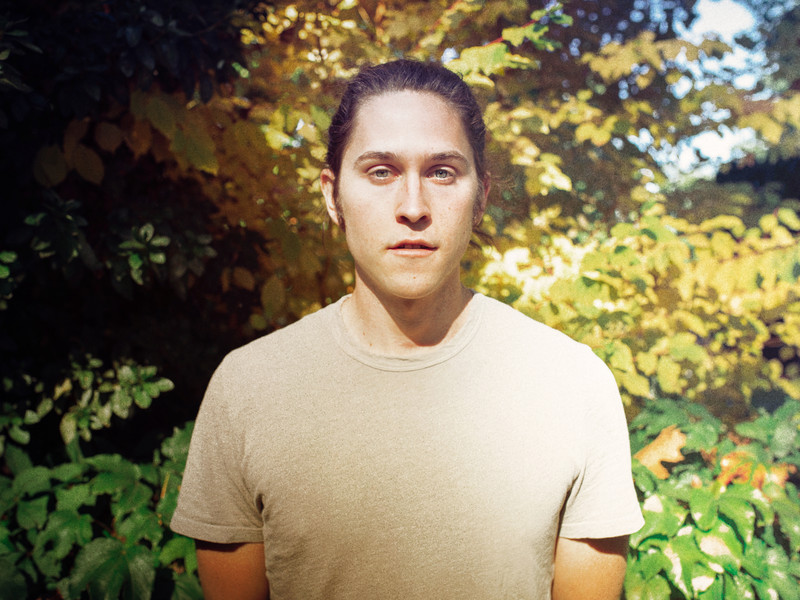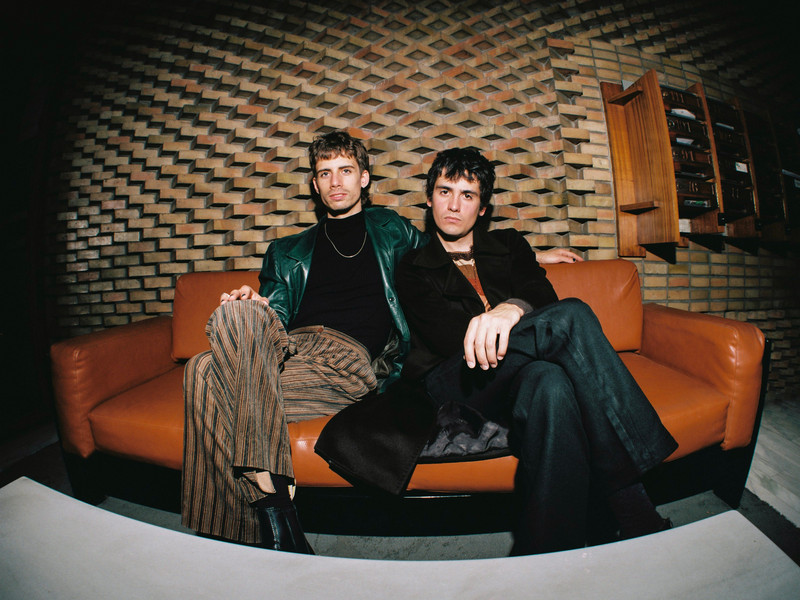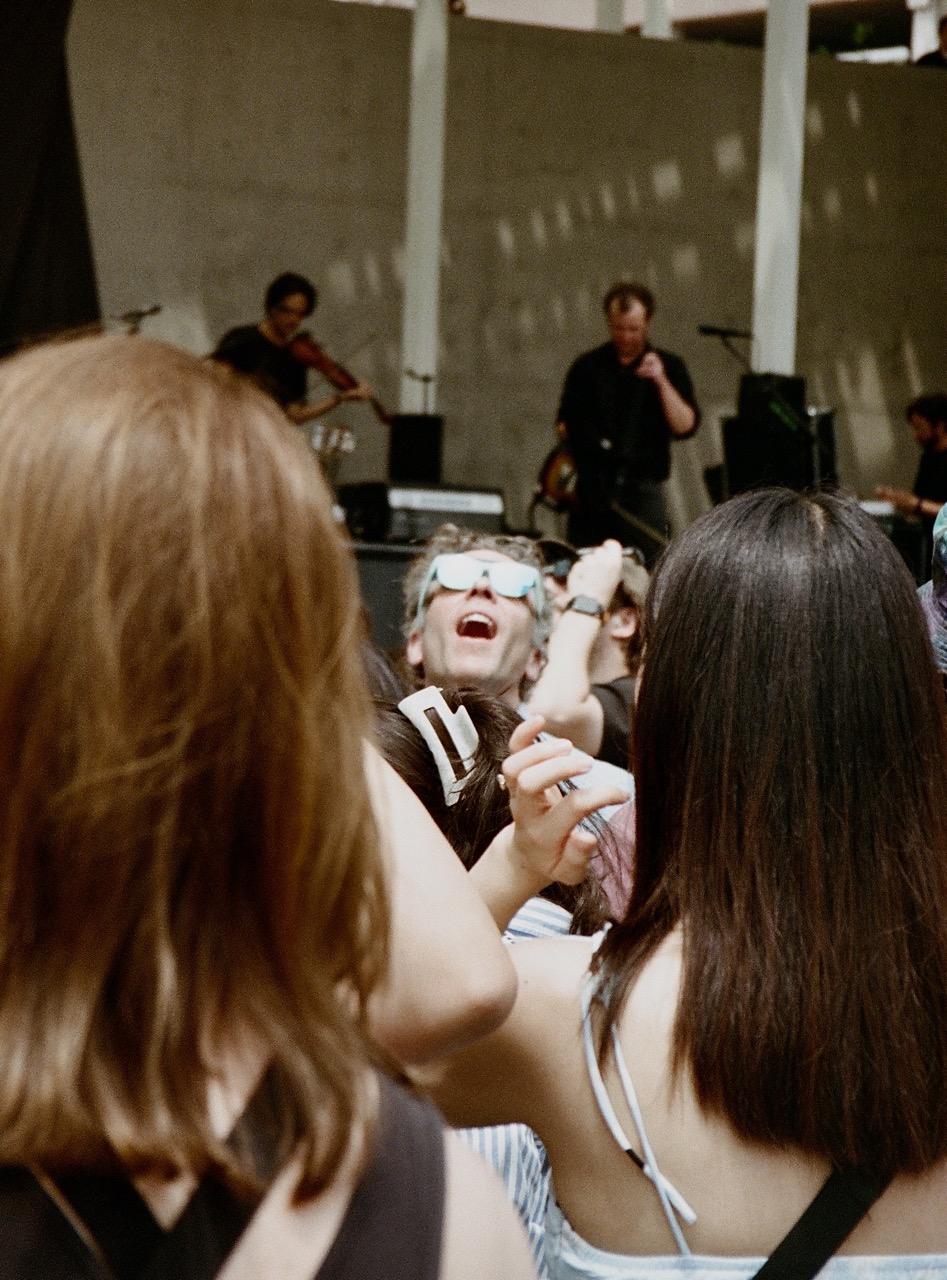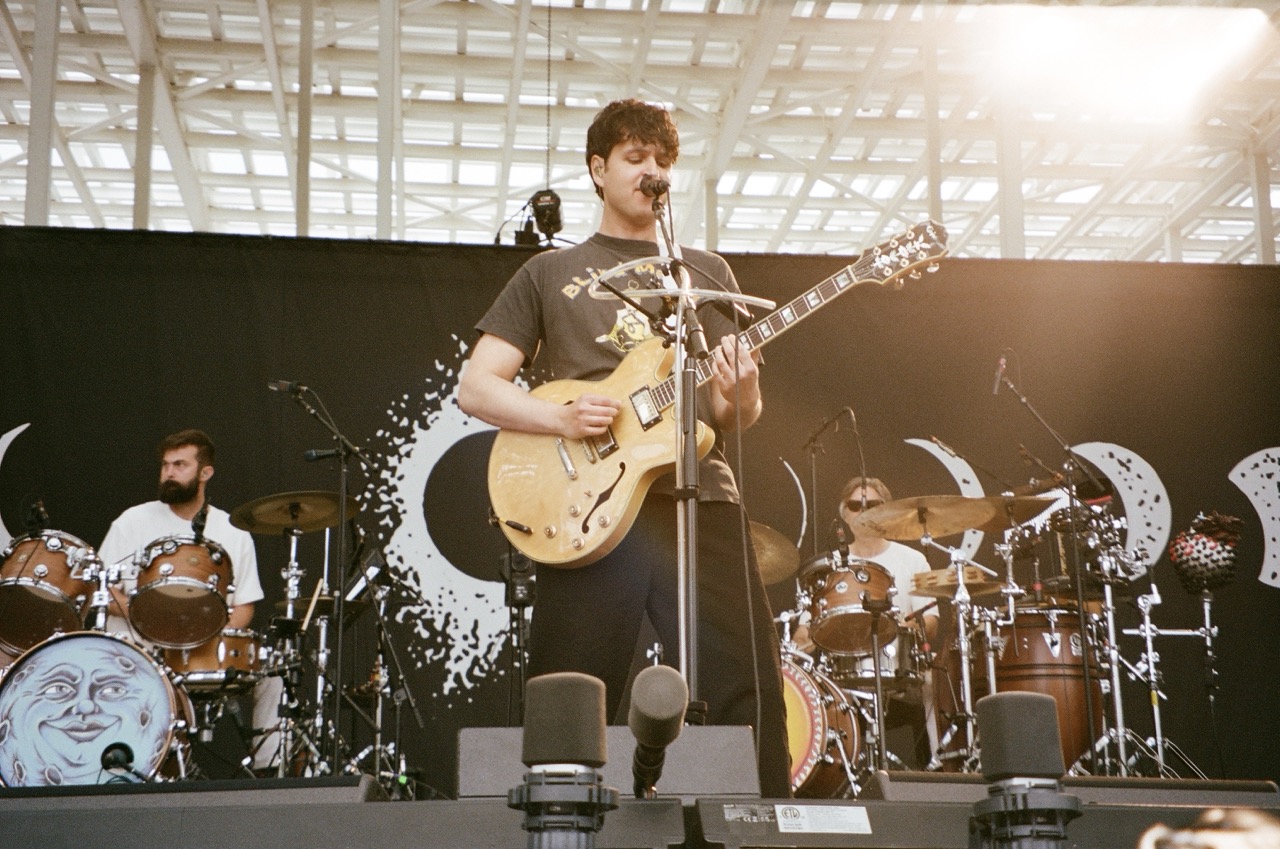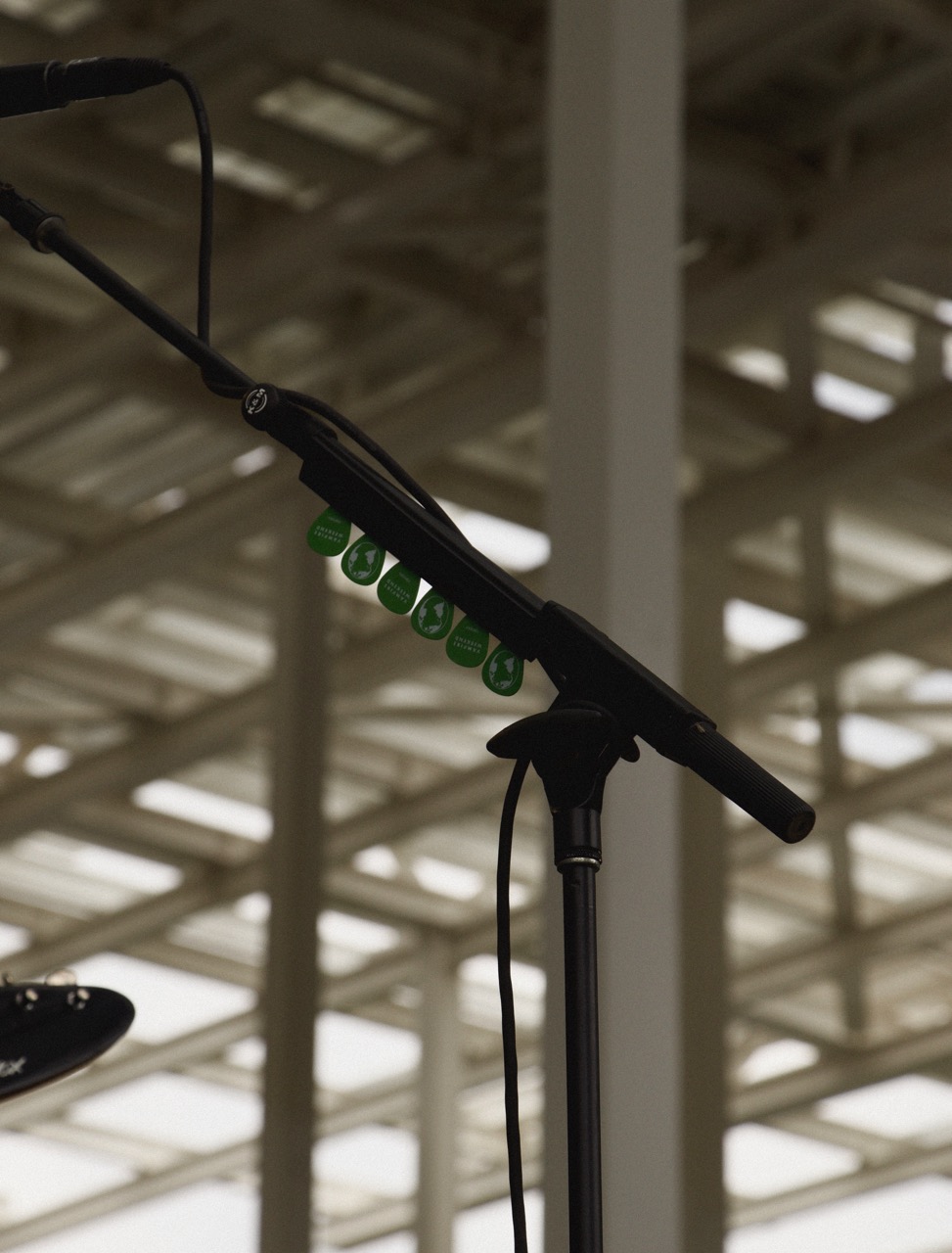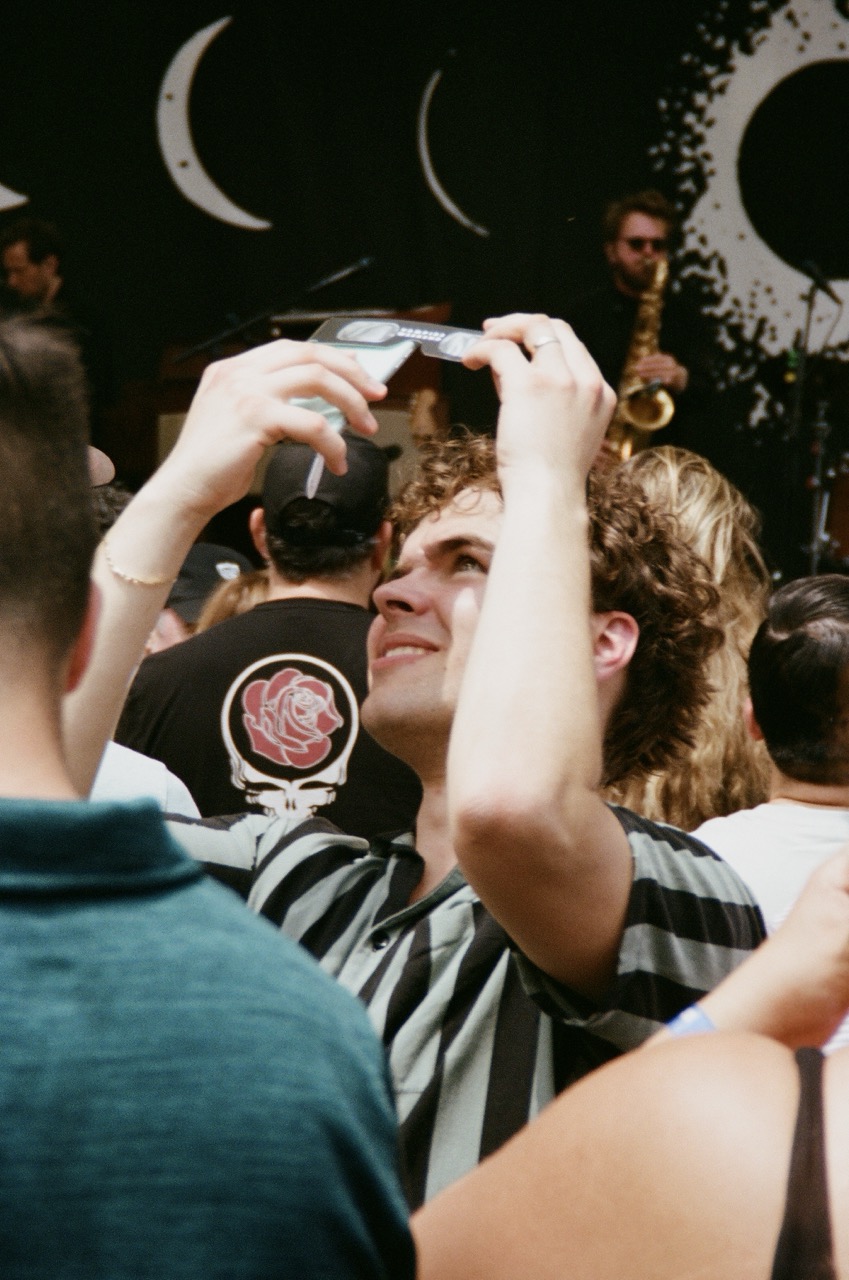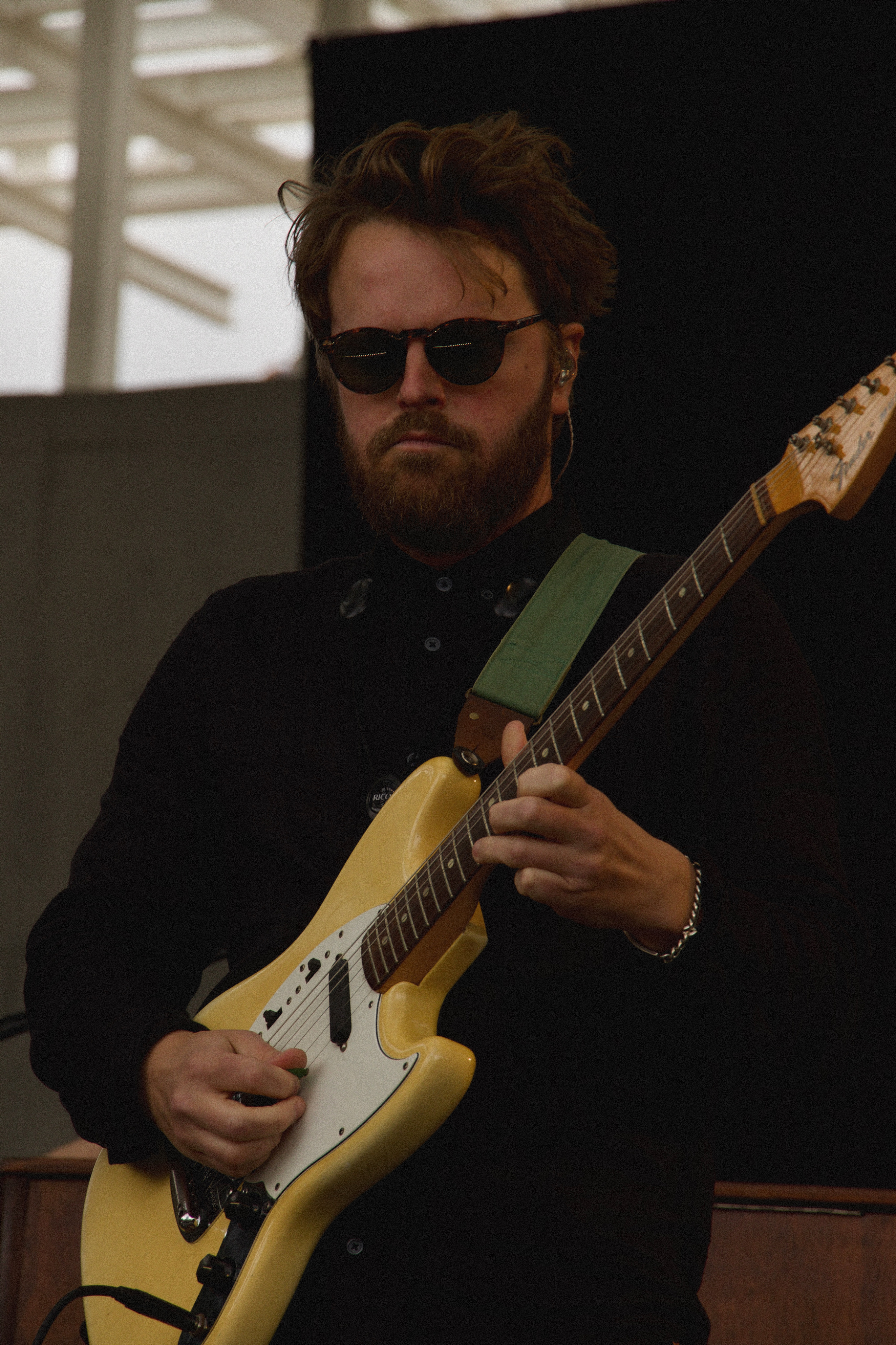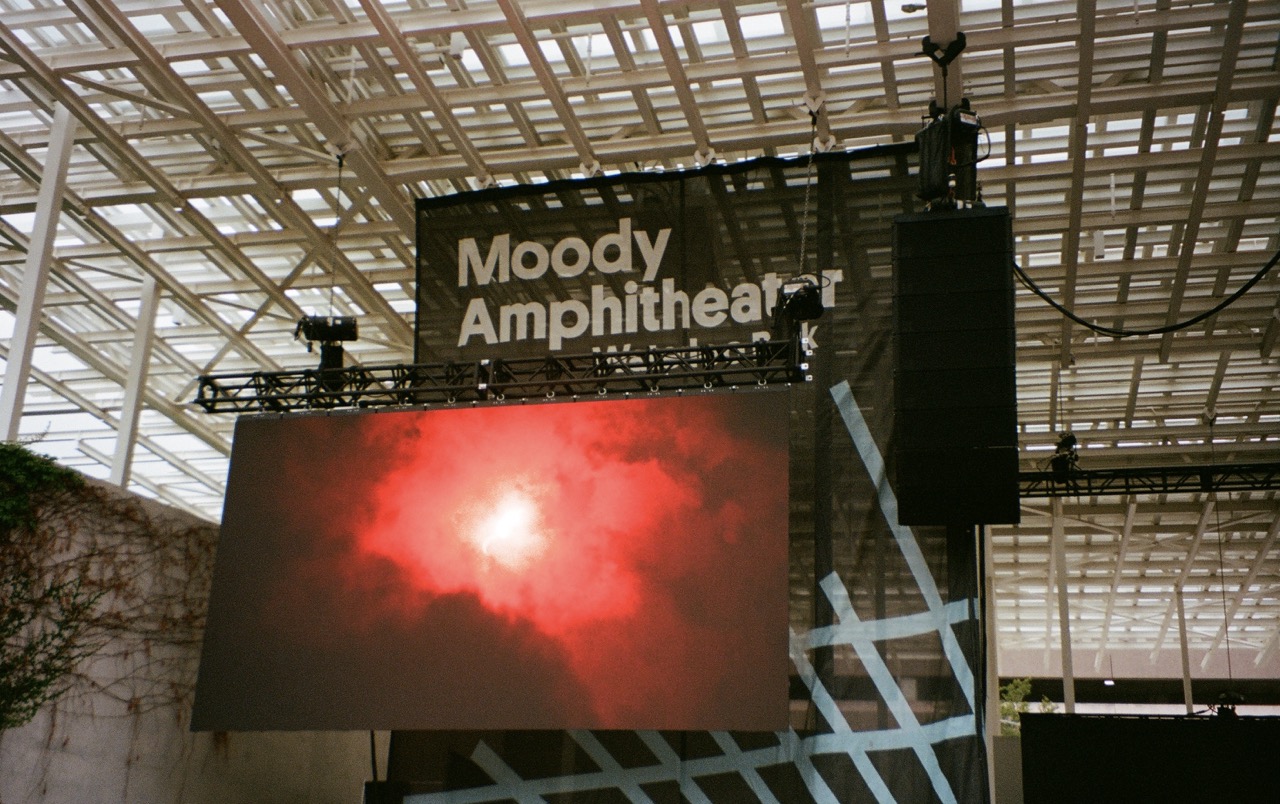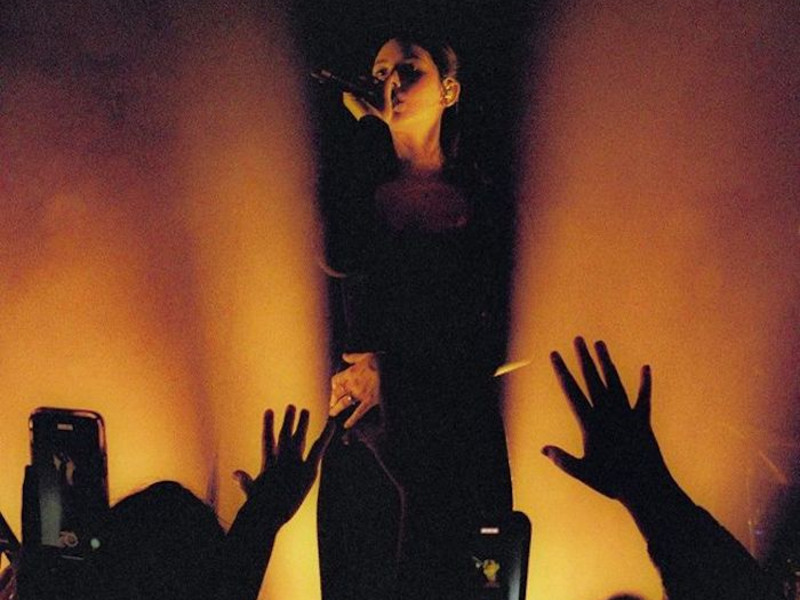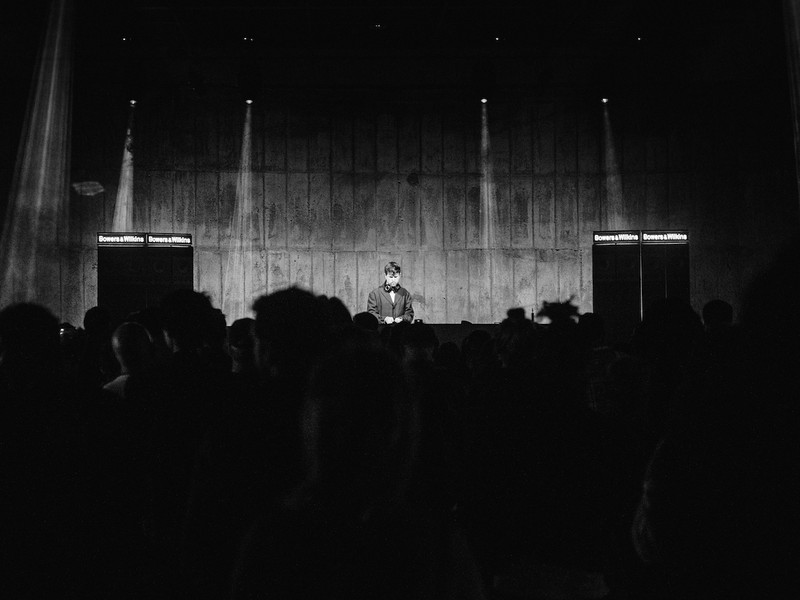Underscores and Jane Remover Shoot it Out
underscores— How are you doing?
Jane Remover— I’m doing pretty good, how are you doing?
underscores— Chilling, this is fire. We’re having an Olivia-Rodrigo-Phoebe-Bridgers-interview moment. But I think we’re both Olivia Rodrigo.
Jane Remover— I don’t think either of us are Phoebe, both of us are Olivia for sure.
underscores— Love to Phoebe, though.
Jane Remover— For sure. How’s your tour been? I know that you're currently on the road on the Hometown Tour.
underscores— It's been really fun so far, we’re about a third of the way through. I really wanted it to feel like it was super high effort vibes for a small show, so hopefully that comes across. But I’ve been having trouble seeing the guitar while I’m on stage. That’s been the only bummer. What about you, are you doing any live shows soon?
Jane Remover— Not that I know of, no. Sort of on pause with that, not for too long though. I’m excited to get back at it again, I found touring really rewarding, so I’m looking forward.
underscores— Something I’m really curious about is how you’d translate Census Designated into a live setting. What would that look like?
Jane Remover— I would wanna have a band, and then some kind of granulizer machine with me on stage that I could play with.
underscores— Oh, that's sick!
Jane Remover— I know, right? I mean if we can, we can, if we can’t, we can’t and that’s okay. It would just be the band and I with my machine and then…. I don’t know how much I can talk about it actually, I might need to keep this off the record….
underscores— That’s fire. I really liked the setup you had for the brakence tour; it was guitar, vocals, and noise. You’ve really hit this really crazy pocket that I don’t think anyone else can really claim where you’ve made these super pastoral and beautiful rock songs and, at the same time, they’ve got all of this insanely detailed and thoughtful noise woven throughout the whole project.
Jane Remover— Hell yeah, I appreciate it.
underscores— I want to hear more about the differences in the production process for Census Designated versus, like, the stuff you’ve been putting out in the past though, because they're two very different sonic palettes.
Jane Remover— I found that the songwriting took a lot more tries for the recent album. I think the only one that didn't go through any revisions was Lips.
I knew that I didn't really want to do the whole chiptune, bitcrushed guitar, pop route. This time around, I just wanted everything to be a little more serious, whatever that means. I told myself from the beginning, that every album I do should be in a different genre or style. So this is the noise rock album, I guess. But I guess the next one will be something completely different.
underscores— That’s cool, I think it’s interesting how a lot of the hints of new styles you were playing with in your earlier work almost metamorphosed into Census.
Jane Remover— What about you! I’m interested in Wallsocket’s connection to horror; the “final girl,” the dark color grading in the music videos, the body-horror imagery in our song “Uncanny long arms” and “Horror movie soundtrack.” Were there any horror movie influences in your mental Pinterest boards for this project?
underscores— Yeah, totally. Especially the ones that are centered in a pastoral, American setting. I think there's something really beautiful about the medium of horror films. The whole goal of the genre is to scare people. And if you're making a horror movie, you wanna scare the most people. And the people that are gonna be the most scared are, like, the upper-middle class. You know, the comfortable kind of two-car situation. And that's why you see in slashers, for example, they're always running through these pseudo-extravagant McMansions and stuff like that. These horror class implications were like something I definitely wanted to include, just because I wanted to poke at the upper-middle class sphere that I grew up in.
But I also think I was inspired by movies like Texas Chainsaw Massacre or Bones and All where they focus on the beauty of these pockets of America that are just, like, super empty and wide. It also came from me traveling, being like, “Oh, it's kinda beautiful here.” So just seeing new places was a huge part of it, too.
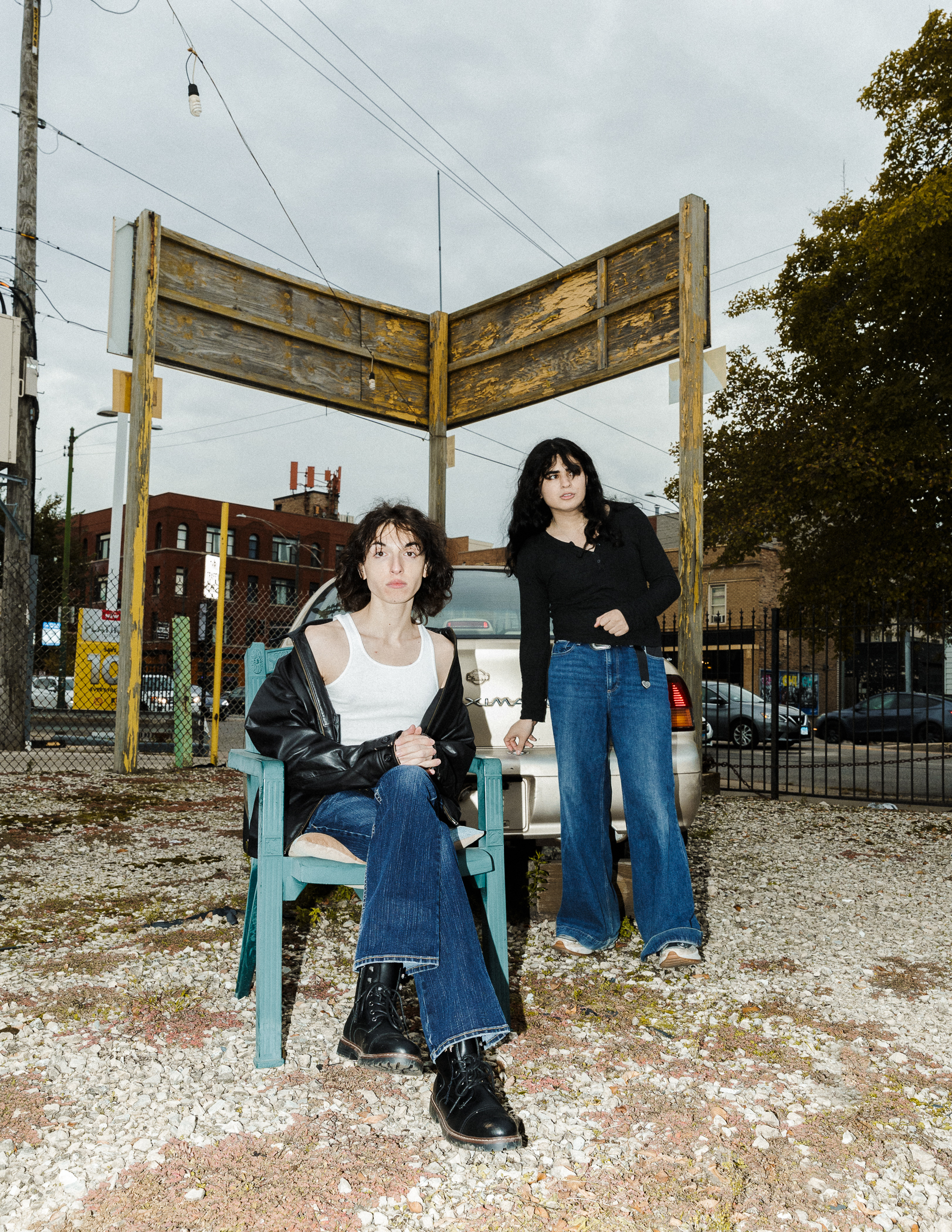
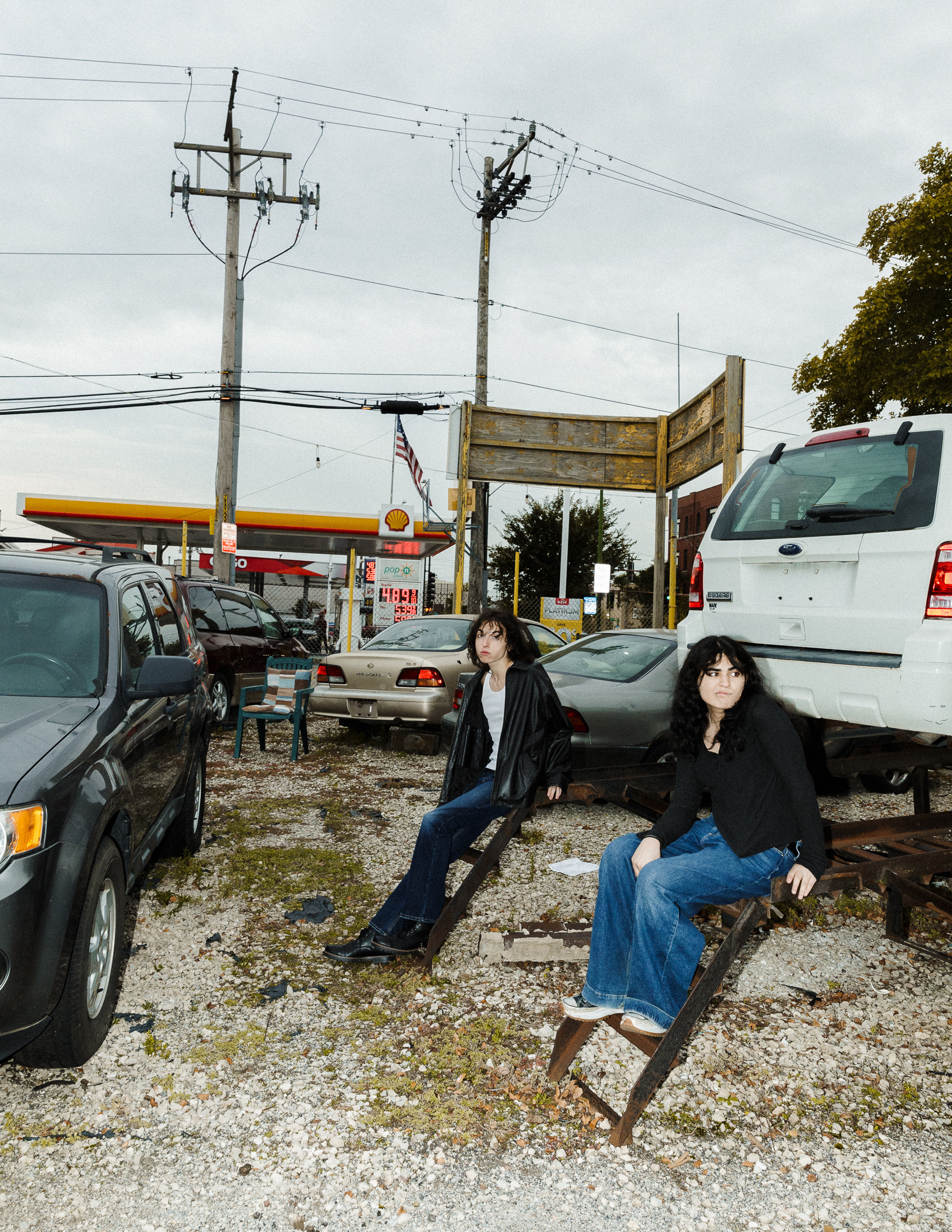
underscores— I feel like there is a lot of horror imagery in Census Designated as well — chests, holes, faces, mouths, scraping, eating. I was listening to it today and felt like, “There's so many parts of it that feel very body horror.” Was body horror an influence at all for Census?
Jane Remover— Body horror is a big influence on Census Designated. I think every song at a certain point involves something gory or body horror-related. I think it’s for a multitude of reasons. It's partially because I was genuinely inspired by horror movies, especially really weird esoteric body horror. Something about it caught my eye; movies like Guinea Pig, for example. It's like, what’s the target audience for Guinea Pig? You know, like who are the people that are going to watch Guinea Pig and be like, “I love this movie.” Most of Census Designated is about tapping into the dark parts of your brain; your intrusive thoughts, your worst nightmares. That’s probably the main reason why I radiated towards horror movies.
underscores— In my opinion, body horror is the most effective kind of horror. That’s why there might be a bit of a stigma against it; I think the people that really like the A24 psychological horror stuff are really not fucking with body horror.
Jane Remover— Especially ‘cause, like, the way body horror movies play out, it could kinda happen to anyone. Nobody is really safe from getting their leg chopped off, regardless of their status.
underscores— 100 percent. The other thing that I’ve been seeing with Wallsocket, and it might very well pop up now that Census is out too, but I’ve been getting a lot of people talking about the correlation between body horror and being trans.
Jane Remover— I totally see that.
underscores— For me personally, I didn’t go into it from that angle, but it’s a very interesting connection.
Jane Remover— No same, I mean, it wasn’t intentional. But once the lyrics come out and you see a lot of people analyzing it and I’m like, “OK, this makes total sense and all and I’m not mad, but that wasn’t really where I was going with it. It wasn’t what I was trying to convey.”
underscores— How do you feel about people taking different interpretations of your work than what you originally intended?
Jane Remover— I find that I tend to get defensive about my music, not necessarily when people disagree, but being misinterpreted is something that can really set me off sometimes. But then again, when it comes to the body horror misinterpretations, I don't really mind it just because I can see it too, you know.
underscores— I’m in the same boat, if it’s a connection that can clearly be made or drawn or whatever, I’m like, “OK, that's valid.” At the same time, I also think it's cool for people to have their own idea of what the work is about, especially if it's effective for them in some emotional way. That's always a good thing, but I get what you mean about feeling misinterpreted; that’s been happening with Wallsocket a bit. Like with some of the songs that tackle harder topics, I’m like, “Damn, I should have tried to rewrite these lyrics just two, three more times to have communicated my message better. What if I’m putting the wrong thing out in the world?” I don’t know, it’s very tricky. I think that both you and I are perhaps at a similar place where a large number of people are now really starting to step into our songs and pick them apart.
Jane Remover— For sure. I tried my best with Census to find some kind of middle ground where the lyrics are also up for interpretation. I wrote all the songs with a specific intention, but I wanted to write in a way where someone can interpret this differently, or maybe even apply it to themselves. I do think that any music that is public is gonna be interpreted differently by somebody else. It’s the reason why, like, Your Best American Girl by Mitski blows up on TikTok and you see a bunch of, like, blonde, white girls making videos about it.
underscores— Haha, for sure. Speaking of intention, you recently told me that you also do the tracklist first before writing the music. How close was the final tracklist to the original thing that you were going for?
Jane Remover— So, I was originally going to have Lips as track one on the album, but I feel like playing an album and having it immediately go into Lips is a bit too much. I knew that Contingency Song”was going to be the outro from the beginning. Aside from that, I'd say it's like 80 to 90 percent accurate. Maybe the song titles are a little bit different, but based on what the songs are about and what it sounds like, I think I hit the nail on the head.
I usually have trouble when it comes to staying on top of one idea because my mind wanders a lot and I start gravitating towards a different style or a different thought; already onto the next thing. But that didn’t happen while producing this album. I feel very rewarded by myself.
underscores— Hell yeah. I noticed that there are a lot of segments from certain snippets you’ve posted online before on the album, like “search party (Alternate Version)” or “do it again / cigarette.” There’s even an interpolation of “David Ortiz Pillbox” by venturing. When you originally made those songs, did you know you wanted to revisit them?
Jane Remover— Not really actually! Originally, Census Designated was going to be an EP. It was going to be six or seven tracks and 40 minutes long, until I decided that I really wanted to revisit these old songs that deserved better. As for the venturing interpolation, that was also something I wanted to look back on, and when I made it, I immediately knew that I wanted to attach this to something bigger.
Regarding the attention to detail on building the Wallsocket world and how this idea was able to grow and blossom over such a long time, do you personally feel like you got to create everything that you wanted to?
underscores— No. I’ve been saying recently that with Wallsocket, I got, like, 60% to a project that, in my life, I would like to 100%. But regardless, I got to do a lot of really amazing stuff and I’m very happy that, at this point in my life, I’m able to do a wide ambitious project with a lot of moving parts. I’m super grateful with what we’ve been able to do with this rollout, and I hope it’s been as fun for everyone involved.
Jane Remover— Totally. Do you consider yourself a perfectionist?
underscores— I think so. I have a really logical, type-A mind; it’s very pragmatic. Whenever I'm making music, it's like solving an equation or something. But I definitely don’t think I’m fully satisfied with Wallsocket. It's like the album's not perfect by any means; there's a lot of things I would have changed about it. What about you?
Jane Remover— I feel the same way. There's a lot of different routes to making this album that I feel like I could have taken and maybe I could have been happier with, maybe I wouldn't. I don't think I'm necessarily a perfectionist; I think that I always think that I could have done something differently and I tend to harp on it sometimes. But I agree with you, it's like a very pragmatic process.
underscores— Do you think you had all of the time you would have wanted to create Census Designated?
Jane Remover— I think so. I was working on this album for over a year and a half. And prior to this album, the longest time I've ever spent working on a project was Frailty, which took like six, seven months. I think I'm really impatient when it comes to making a song; once I'm in the groove, I kinda just can't stop.
I spent a lot of time working on Census and many songs probably went through ten different versions before I got them to where I wanted them to be. But then again, you know, there can always be like an eleventh version that I could have made, or I could have slipped in an eleventh track. If I had eleven songs, it would probably be way too long of an album, haha.
underscores— When you release music, do you still associate it with yourself, if that makes sense? Do they still feel like yours when you give them away?
Jane Remover— I think so, yeah. This applies to every artist, but I think no one can make the music you make. I think music is entirely like the product of one person and one person only. So I do think that the music belongs to me in that sense. But, again, even though I know what the song’s about, now the music is for everybody to hear. Anyone can listen to it and interpret it how they want to.
underscores— I totally agree with you. I've been saying it a lot recently but when it comes to someone’s Venn diagrams in life — the circumstances they grew up in, their parents, the movies you watched, the geography of their town, all of these factors — no other person has that exact variation. That combination of things means that whatever art you create is inherently your own.
underscores— I've been having this weird thing in my mind ever since fishmonger where I feel like I'm doing karaoke for myself. Or I'm, like, the underscores expert, but I'm not underscores, I just know a lot about underscores. I’m curious to know if you have any similar feelings, especially after Frailty released?
Jane Remover— This is kinda indirectly related but each time a body of work comes out, I am already tired of it. So I felt like as soon as Frailty came out, I was like, “Well, I know I can do better than this. Now I'm kind of just singing these songs that I know are not my best.” And I feel like that's just gonna be the way I am to the end of time. At the same time though, it does encourage me to keep doing what I’m doing. In a sense, I think that performing is similar to doing karaoke of your own song, but it’s enjoyable for sure.
Do you get nervous before a show?
underscores— Maybe not as much as I used to, especially with frequency. What about you?
Jane Remover— The way it played out was I would feel totally fine until like 15 minutes before I go on. But by the time I walk out and sing the first note, it’s all gone. I kind of just black out.
underscores— Exactly, that's literally how it goes. Also, I think once you do a headline tour, I think the nerves might fade a little bit because you're just gonna be like, “Oh my God, we’re all on the same page here.” It's not like when you're opening for somebody, which I think can be a lot scarier because the audiences are full of people who are hearing you for the very first time. You don’t want to make a bad first impression. But I'm super excited for you to do a full headline tour if that's in the cards.
Jane Remover— To go back to an earlier point, I wanted to talk about blurring the lines between fiction, reality and perspective. I find that with the story I make with venturing, for example, I see myself in every character. When it comes to Wallsocket being about these three girls, do you see yourself in all of the characters or is it entirely fiction?
underscores— The funny thing is that I've been seeing a lot of people point at one of the main characters and say, “Oh, this is the self-insert character.” They’re all the self-insert character. Otherwise, I think I’d be making a project that was apersonal, or whatever. I kind of just split up the things I was either thinking about or going through into three different characters in order to show the different circumstances of each one of them. But the thing I really like about all three of these characters being self-inserts is that, in real life, it’s not like one character is the one who suffers and one character is the one that is fine all the time. Everyone’s a mix of those three.
I’ve been seeing theories but I wasn’t sure; does Census Designated have a narrative as well?
Jane Remover— So, it's not a story and there's no plot necessarily, but there is a direction it takes after track seven or eight. The album is basically a bad ending. It’s about your life turning into this nightmare that you were so afraid of. Sonically, I wanted it to sound like the album goes from dusk to dawn. So “Cage Girl” starts when the sun goes down and then “Contingency Song” ends when the sun goes up.
underscores— Oh, I could so see that. That's crazy. Yeah, the bad ending makes sense now because I'm like, damn, you backloaded the three most devastating tracks to me and put them as the three last songs on the album. Do you view it as a “bad ending” though because you wanted it to be a reflection of what you’re currently feeling or more like a cautionary tale?
Jane Remover— I'd say it's a combination of internal struggles, external struggles and, like, really bad intrusive thoughts.
underscores— I guess this is a little bit of a detour, but I wanted to talk about the imagery of Census Designated. You did such a great job of having that album sound like dead grass. When you're making music, do you see these kinds of textures and colors? Do the audio and the visual share a language?
Jane Remover— I'm so happy you brought that up. The picture that I was painting for the entire album was literally dead grass blowing in the wind.
underscores— It definitely sounds like it!
Jane Remover— That was the whole vibe I was trying to paint the whole way through. When I listen to it, I really picture this grass, I can see mountains, dilapidated houses and all that.
underscores— What was the process of location scouting for that world? All the amazing photos you took are so emblematic of what the music sounds like, as well as the video Quadeca directed.
Jane Remover— It originally started with me going on Zillow and looking at listings that caught my eye. I would find a lot of listings that didn't have any photos and I would look at Google Street View and see what's around there. I feel really lucky because I didn't think that I would be able to travel for this album, but luckily Frailty did so much for me that I was able to actually visualize this project to the fullest, and not have to do all the digging myself.
We found this photographer — Brendon Burton — who kind of specializes in that vibe of like, you know, empty plains, dead grass, abandoned houses. What caught my eye the most is that his work kind of looks like paintings in a way. I wanted to give that contrast to my new work. I needed it, because I'm not going to keep doing the Frailty stuff forever. I wanted to paint this big beautiful picture.
underscores— Yeah, ‘cause with Frailty, it was a lot of fried images and super noisy, grainy stuff, whereas now the quality is super high-def. To me, that’s really cool because Census is still a very noisy album, but it isn’t computer JPEG noise. I feel like it's not meant to be in the computer, or it doesn't sound like the album's living inside the computer. It sounds like it's living in Dead Grass World or whatever.
Jane Remover— Thank you. The noise to me feels like, you know, picturing the same field but you can see the electricity flowing through power lines that surround the dead grass.
underscores— Oh, that's so fire.
Jane Remover— Before we have got to go, I just really would like to hear your opinion on the barrier that's placed between the artist and the fan, why it's necessary, and what it means to be a fangirl in 2023. How does being perceived on a wide scale impact the music creation and rollout process, not just for you but for everyone?
underscores— I'm basically of the opinion that there should always be some kind of vessel to feed the communication between artists and fans. I feel like when it's just pure, it can get kind of murky and people abuse their power, or it gets really weird for the artist. I think having no middleman can be dangerous. I try to avoid that. Even having something like an album to put my communication in works as that middleman. But that being said, when fans are like, “Oh, but like, we're the reason you're here,” I agree with that too. I don't think people should be rude to fans because, like, they’re your biggest supporters. But I definitely still think there should be a line in the sand for sure!
Okay, last question, let’s do a silly one. What’s your least favorite Pokémon?
Jane Remover— My least favorite? Ooh, that’s a good question. Probably, like, Drapion or something. It’s just hard to beat. Do you have a least favorite?
underscores— I lowkey know nothing about Pokémon. There are ones that are, like, items… I don’t like the ones that are items.
Jane Remover— Did you see one that’s just a pair of keys?
underscores— Yeah, exactly, fuck that. I found out recently that my favorite is Xatu, though.
Jane Remover— Hell yeah.
underscores— Like, the eyes….
Jane Remover— That’s what I’m saying. Psychic and flying-type, that’s a good combo.
